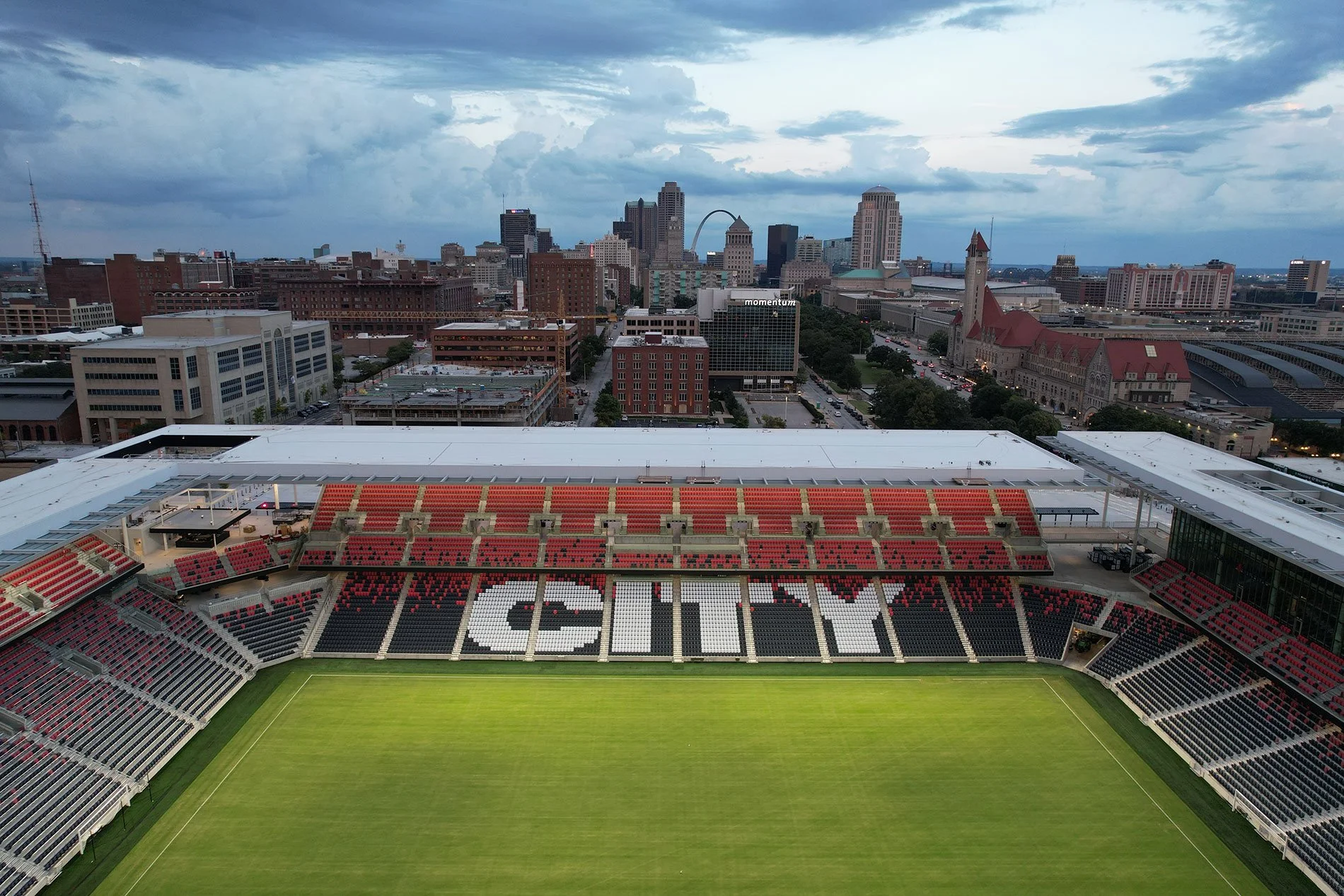St. Louis CITY SC has announced a new study detailing the team's significant economic impact on the St. Louis metro area, totaling nearly $170 million in its inaugural 2023 season.
Much of the economic boost centers around the 22,500-seat CITYPARK stadium that anchors a mixed-use district including the team’s academy facilities, headquarters, practice fields, and training facility.
Above: CITYPARK Stadium, the home of St. Louis CITY SC, is located just across the street from Union Station. Image courtesy of HOK
Designed by HOK and Snow Kreilich Architects, CITYPARK was strategically located across the street from the city’s historic Union Station and at the edge of the Gateway Mall, a strip of green space linking the stadium to the Gateway Arch and the Mississippi River.
As planned, the CITYPARK campus has catalyzed downtown activity year-round and reinvigorated the surrounding neighborhoods– featuring public gathering spaces for hosting events, concerts, and more.
Kurt Weigle, Chief Downtown Officer for Greater St. Louis, Inc., highlighted the study's findings in a statement. "From the moment the team was announced, CITY SC has injected energy and enthusiasm, bolstering civic pride in our metro area. This study confirms their substantial economic influence on Downtown St. Louis and the broader regional economy," Weigle said.
Weigle credited the team's community success to the commitment of Carolyn Kindle, Andy Taylor, the Taylor Family, and the entire CITY SC ownership team. "Their civic leadership is driving growth and creating the momentum St. Louis needs to thrive in this decade," he added.
The study, conducted by independent planning firm PGAV and commissioned by CITY SC and Greater St. Louis, Inc., found that CITY SC generated over $168 million in economic impact for the St. Louis region during the 2023 season.
Key findings from the study include:
The construction of CITYPARK and its 32-acre campus has contributed an additional $1.4 billion in economic impact since 2020.
The privately-owned stadium campus, which includes the stadium, training facility, practice fields, team store, parking garage, and corporate headquarters, had a direct cost of $667 million.
The overall economic impact includes approximately $122 million in incremental tax revenue, with $33 million in local and state tax revenue and $15 million in infrastructure upgrades to lighting, sidewalks, bike paths, and streets in the surrounding area.


